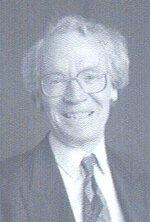Patrick O’Brien, born in London, UK, in 1932. Ph.D. from the University of Oxford. Centennial Professor of Economic History at the London School of Economics.
Guest of the Rector (1 June 2004 – 30 June 2004)
REGIMES FOR THE PRODUCTION AND DIFFUSION OF USEFUL AND RELIABLE KNOWLEDGE IN WESTERN EUROPE AND CHINA FROM THE ACCESSION OF THE MING DYNASTY TO THE INDUSTRIAL REVOLUTION
Progress on my current book, Regimes for the Production and Diffusion of Useful and Reliable Knowledge in Europe and China from the Accession of the Ming Dynasty (1368) to the First Opium War (1839) has, thanks to the excellent support services and library facilities available at NIAS exceeded my expectations. It was my privilege to outline the ‘architecture’ of that book (provisional publication with CUP 2006) before distinguished historians from Leiden University at a short conference on Global Economic History, organized by Peer Vries to coincide with my presence at the Institute.
My lecture contextualized the book as a missing chapter in a meta-narrative in the comparative economic history of China and Western Europe. That meta-narrative originated with intellectual debates during the Enlightenment and has continued through a line of canonical social scientists and historians – Quesnay, Smith, Malthus, Marx, Weber, Braudel, Hicks, McNeill, Jones, Landes, Bairoch, Frank and Pomeranz. That tradition has been concerned with the questions when, how and why did levels of labour productivity and standards of living in the economies of Western Europe first converge upon, overtake and then clearly diverge from levels established in China for millennia before 1492. My book is concerned to investigate the contexts regimes; urban sites, educational institutions, private and state patronage, and above all cosmologies about the natural world) pervading conceptions of knowledge and innovation in Europe compared to China. With advice from a distinguished network of Sinologists (especially Harriet Zurndorfer of Leiden) I found time at NIAS to engage with a bibliography of Sinological literature in history, anthropology and philosophy. My understanding of that complex society and economy and the cosmological foundations of its institutions and their resistance to change has become deeper, largely by reading, but also through conversations with Blussé, Emmer, Zurndorfer, Vries (of Leiden) and by presenting a paper in Konstanz at a conference organized by the distinguished German Sinologist, Jurgen Osterhammel.
My colleagues at NIAS (especially the group in environmental history) were gracious enough to listen and comment on my endeavours to construct a missing chapter in a traditional meta-narrative of divergence between East and West.
